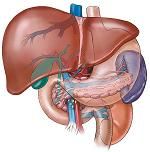Article
High Cholesterol Intake Linked to Higher Liver-Related Deaths in Women with Hepatitis C
Author(s):
A high consumption of cholesterol may lead to an increased risk for liver-related death and transplants among women who are infected with hepatitis C, according to a recent university study.

A high consumption of cholesterol may lead to an increased risk for liver-related death and transplants among women who are infected with hepatitis C, according to a recent university study.
Noting that dietary cholesterol induces inflammation and fibrosis in animals, researchers from the University of Washington in Seattle, WA, wanted to find out if there were similar results in humans. The study findings were published January 28 in the British Journal of Nutrition.
Researchers conducted a retrospective cohort study using extended follow-up data from the Hepatitis C Antiviral Long-Term Treatment Against Cirrhosis Trial, also known as the HALT C Trial. They wanted to find out whether dietary cholesterol consumption affects liver-related mortality in people infected with the hepatitis C virus.
The study analyzed data from 657 patients infected with HCV and advanced fibrosis and compensated cirrhosis, according to the journal article. To assess whether cholesterol intake was associated with liver-related death or transplantation, researchers measured cholesterol in mg/4184 kJ (mg/1000 kcal) of energy intake and incorporated Block Food Frequency Questionnaires to assess dietary intake based on self-reported frequency and portion of foods.
Results showed that in 4.7 years, there were 46 liver-related deaths and 52 transplantations, an incidence of liver-related death or transplantations of 31.8 out of 1000 person years. Of note was an unexpected finding, a big difference between women and men, state the authors. The increasing risk of liver-related death or transplantation associated with increased dietary cholesterol intake was seen only in women.
Researchers compared women who consumed cholesterol within recommended guidelines to women who consumed high cholesterol amounts in their diet. Those with high dietary cholesterol intake had “significantly increased risk” for liver-related death or transplantation, according to the article.
“High dietary cholesterol was associated with an increased risk for liver-related death and transplantation in HCV-infected women with advanced fibrosis or compensated cirrhosis,” the authors wrote.
The authors note in the article that most of the women in the study were post-menopausal with a median age of 52.
“We suspect that the fibrogenic effect of dietary cholesterol is especially pronounced in post-menopausal women as they are no longer protected by the effect of oestrogen, which promotes biliary cholesterol excretion,” states the article. “Although we did demonstrate that the adverse effect of dietary cholesterol was restricted to women who were post-menopausal, given the small number of patients and the multiple levels of effect modification, these results require confirmation from larger studies.”
While it is tempting to speculate that consuming less dietary cholesterol might reduce mortality or transplantation in women with HCV who take in more than the recommended amount, confirmation of such a strategy requires further investigation, said the study’s authors.
“…We hope that the results of our study will generate awareness and interest in the clinical significance of dietary cholesterol not only in HCV infection but in liver disease in general,” concluded the authors.
2 Commerce Drive
Cranbury, NJ 08512
All rights reserved.





